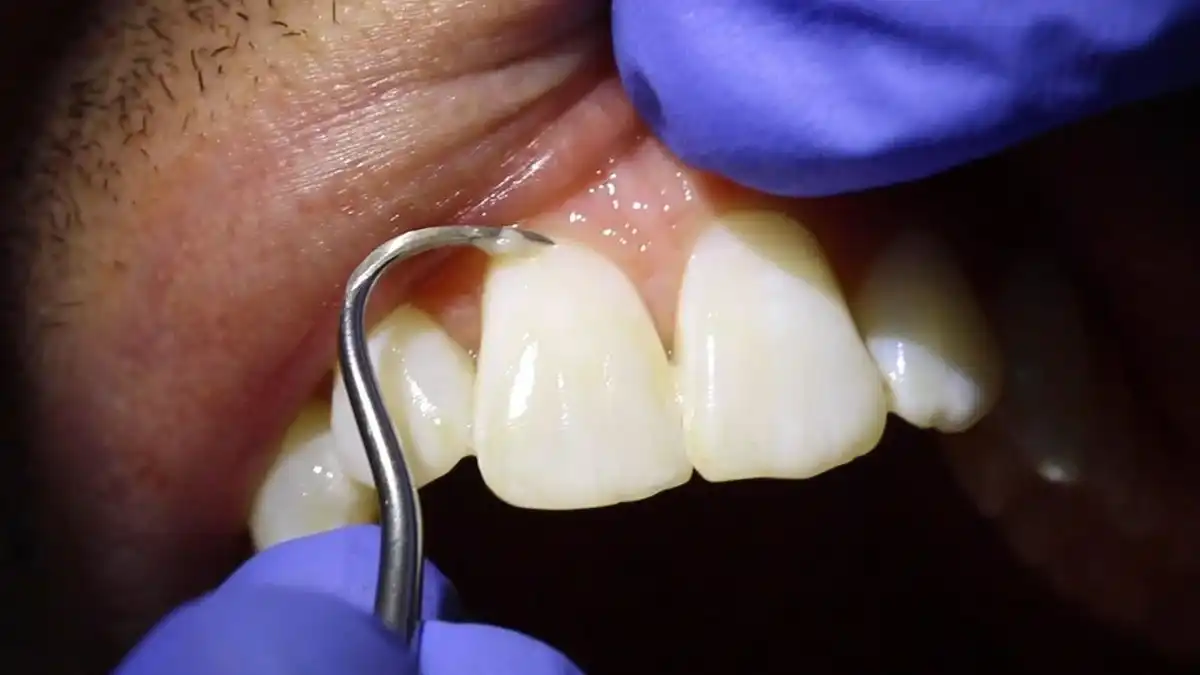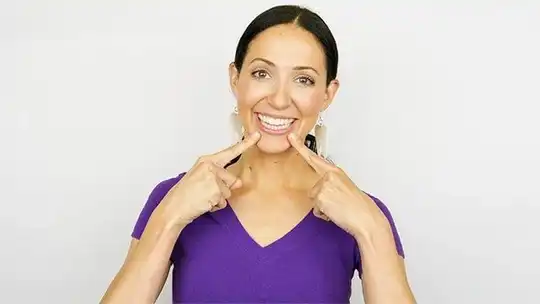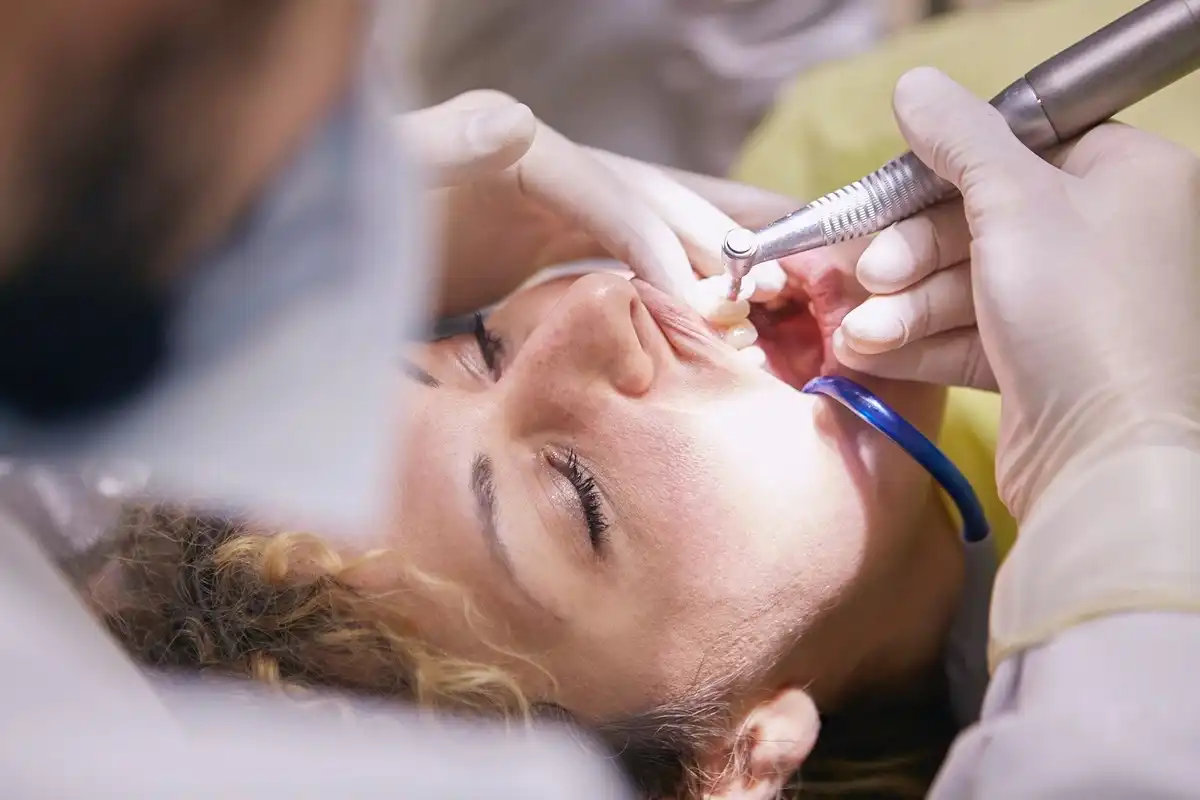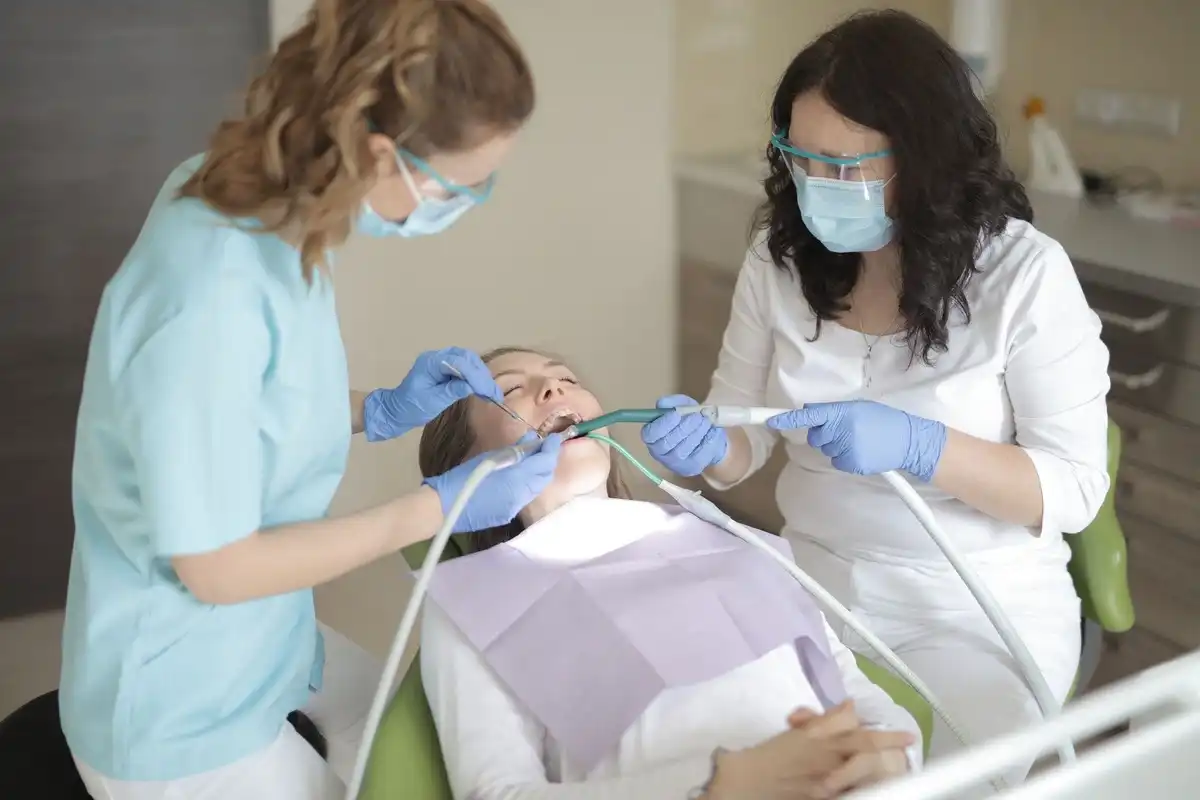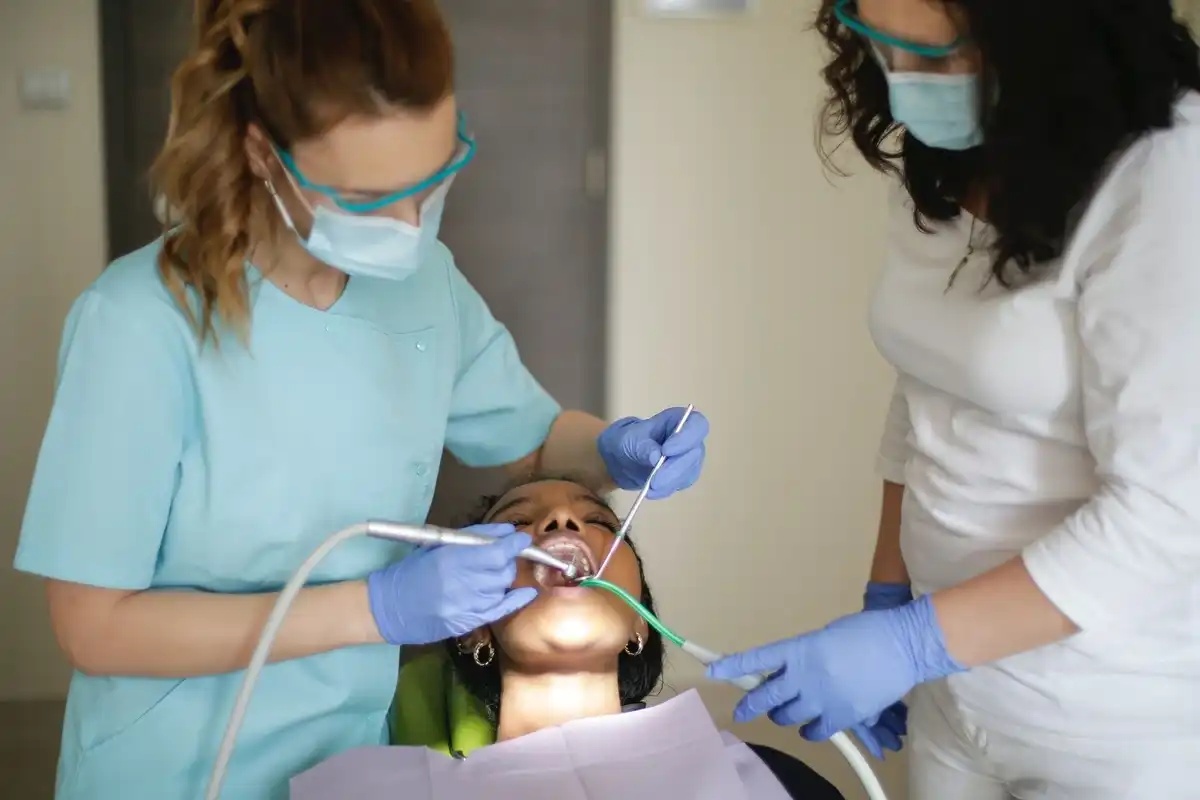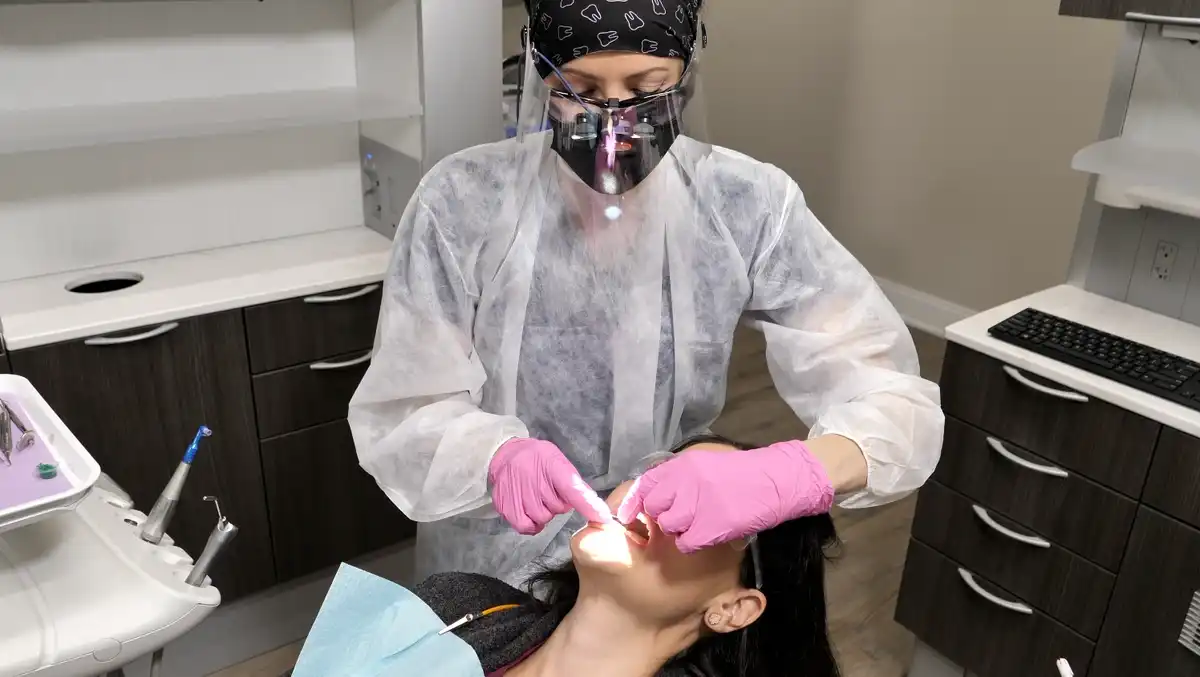Dental Hygiene Schooling, Programs & Requirements


All accredited dental hygiene programs allow graduates to sit for the same state and national boards to become licensed dental hygienists in their respective state. It does not matter which type of hygiene program you attend when it comes to practicing dental hygiene or the level of pay that you receive. However, some individuals prefer a 4-year degree or plan to work toward a master’s degree. If you have goals of working in academia, public health, or research, a bachelor’s degree is typically required. Private practice dental hygienists can hold either type of degree, as long as they maintain regular licensure.
Types Of Dental Hygiene Schools
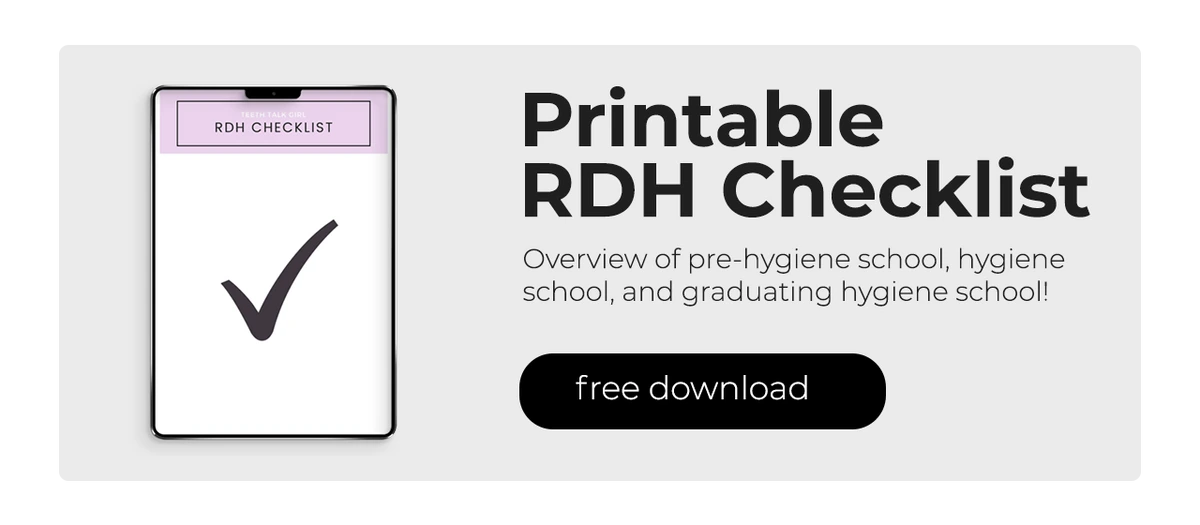
1) Community Colleges
Junior college dental hygiene programs are completed at a 2-year school. Graduates typically receive an Associate of Applied Science (AAS) degree. However, several prerequisite science courses are required prior to admission, so it’s common to still spend at least three years in college. Other programs allow you to complete some of the sciences throughout the duration of your dental hygiene schooling, as long as the majority of prerequisites are completed prior to admission. 2-year hygiene degrees allow graduates to sit for the same board exams as students who attended a 4-year school and typically earn the same level of pay.
2) Universities
Dental hygiene schooling that’s completed at a 4-year university allows dental hygienists to receive a Bachelor of Science (BS) degree straight out of the gate. That way there’s more flexibility when it comes to working outside of traditional clinical practice or later return for a master’s degree. Keep in mind, dental hygiene programs that award a 4-year degree still consist of the same types of hygiene courses when it comes to clinicals and lectures. The biggest difference is that additional core requirements are met for a broader educational foundation.
3) Online Schools
4) Other (Accelerated, Degree Completion, Etc.)
If you see a school that’s advertised as an “accelerated” dental hygiene program, it typically means they condense the traditional courses into longer days/shorter terms or summer classes. A fast-track dental hygiene program may only take 17-18 months to complete, as opposed to 24 months. Some universities offer special dental hygiene programs for hygienists who want to complete their degree (bridging an associate’s into a bachelor’s) or have been outside of practice and want to re-hone their clinical skills. Such re-entry programs are typically tailored to the hygienist, based on how long they’ve been out of practice or what they feel they need to brush up on.
Find A Program Near You
Dental Hygiene Program Must-Haves
Accredited hygiene programs will traditionally last two years, regardless of whether they’re at a community college or university. Throughout the program, you will be required to complete a specific number of hands-on patient care hours and lecture courses.
Keep in mind that if you plan to work anywhere as a hygienist other than traditional clinical hygiene, you will likely need a bachelor’s degree. If traditional hygiene in a dental practice is your only goal, then an associate’s degree is fine.
Education Paths To Become A RDH
The majority of your dental hygiene schooling is going to be completed in the traditional college setting. However, some states also require additional certifications or licenses on top of your hygiene certificate, depending on the State Dental Board’s requirements. Other states include them as part of your hygiene license. These could include things like sealant placement, local anesthetic delivery, or nitrous oxide monitoring certification. Closer toward the end of your final semester in school, your dental hygiene program coordinator will direct you toward which boards and exams to register for. Once scores are finalized and all appropriate papers have been submitted to the state, they will mail you a license. If you move across state lines, there will be certain steps to take to become a licensed dental hygienist in a different state.
What does each educational path look like?
Associate Degree
Students enter a 2-year traditional dental hygiene curriculum which is split between clinical competencies, labs, and traditional lecture formats. During this time, students may also need to complete any remaining basics/prerequisites prior to the corresponding hygiene course for an associate degree.
Bachelor’s Degree
Students spend two years completing all (or most) core decree courses and prerequisites before admission into the 3rd and 4th years of their degree program. These final two years of study include full-time dental hygiene coursework that closely resembles the associate’s degree. Although they are junior and senior-level courses, they are no more “difficult” than the same hygiene classes at a community college.
Accelerated Degrees
Dental hygiene schooling is condensed into shorter semesters or longer days, allowing associate degree programs to be completed in as quickly as 17 months. The same prerequisites are required as other entry-level programs.
Master’s Degree
Registered dental hygienists can return to school in-person or online to pursue a master’s degree, with further studies in research, public health, disease/pathology, and education. Some master’s programs include grant funding for scientific studies and research, based on the student’s interests and career path.
Dental Hygiene Program Requirements
Getting into dental hygiene school follows a specific process as dictated by the program you’re hoping to attend. Although each school will vary slightly from the next, there are core requirements that all aspiring dental hygienists will need to meet prior to being admitted into a reputable dental hygiene program. At the top of the list for all dental hygienists is taking all of the required prerequisite core courses and maintaining a high GPA. If you’re able to “shadow” at a dental office to gain experience, this can also be useful. Plus, it’s just generally a good idea if you want to see what work will really look like after college.

1) General Education
Most dental hygiene programs will require courses in Chemistry, Biology, Microbiology, Anatomy and Physiology (1 & 2), English, Speech, Psychology, and Algebra. Associate degree programs focus more on science class requirements. Bachelor’s degrees will require additional core competencies to meet full 4-year degree requirements (such as History, Government, Foreign Language, etc.) To have a competitive application, aim to have a “B” or higher in all science courses.
2) Work Experience
Career experience in the dental industry is not usually required for dental hygienist, but it can give your application a leg up compared to other applicants. For instance, you may have a better chance at getting admitted if you’ve volunteered at a dental office, worked as a dental assistant/front desk/sterilization tech, or have a dental hygienist as a career mentor who is also serving as a personal reference. But even if you don’t, don’t stress over it.
3) Dental Hygienist Admissions Test
Before your application can be considered, you will need to complete an entrance exam, similar to nursing or dental students. The type of exam you take will depend on which school you’re applying to and the state you’re located in. A popular example is the Dental Hygiene Assessment Exam (DHAE), which used to be called the HESI. The higher the score, the more competitive your application will be. Questions cover subjects related to critical thinking, vocabulary, and life sciences.
4) Previous Transcripts
If you already have all prerequisite courses completed prior to applying to dental hygiene school, it will make your application more competitive. Especially if all of your science requirements are met. The higher the GPA, the better. Grades in your science courses typically matter the most.
5) Letters Of Recommendation
Some dental hygiene programs require letters of recommendation from past employers, dental mentors, or community members. It’s best to have professional references rather than a close friend. If you’ve taken the opportunity to shadow in a dental office, use it as an opportunity to build a relationship with them for future recommendation purposes.
6) Application Information
Always check the application dates for the dental hygiene programs in your area. Knowing what deadlines there are helps to ensure you meet testing requirements, have transcripts sent over in time, or are able to gather reference letters. This is where applying to multiple programs can be beneficial. Schools may admit anywhere from 12-36 students on average, depending on their size, with a waiting list for last-minute admissions in case an admitted student drops out prior to the first week of class.
Dental Hygienist Degrees & Coursework
All dental hygiene schools follow similar studies as dictated by regulatory and licensing agencies. The biggest difference is that some programs award associate’s degrees while others end in a bachelor’s degree. However, every dental hygienist that graduates from an accredited program will have studied the same dental core competencies and mastered the same clinical (hands-on) skills, regardless as to which type of degree they received. The biggest difference in coursework is that universities require a broader range of core/foundational general education requirements for a degree as opposed to a smaller community college.
Associate Degree
A 2-year program (not including prerequisite science courses) with fewer foundational general education requirements.
Bachelor Degree
A 4-year program that includes 2 years of dental hygiene schooling and 2 years of broad, general education core competencies.
Dental Hygienist Coursework
Both 2 and 4-year dental hygiene degree programs will include courses such as:
Dental Radiography
Best practices, placement and angulation techniques, the science behind taking dental X-rays, safety, processing radiographs, how to read and interpret radiographic images, as well as identifying different tissues, anatomical structures, and pathology on X-rays.
Head and Neck Anatomy and Physiology
Study of the soft and hard tissue structures of the face, head, mouth, TMJ, and neck. Differentiating between healthy and pathological/atypical structures. Location of soft tissues and nervous systems for delivery of local anesthetic injections.
Dental Anatomy, Tooth Morphology, Histology, and Embryology
Cellular and structural development of tooth structures, formation, and eruption cycles throughout the human life cycle.
Oral Pathology
Screening for and recognizing forms of various diseases, lesions, cancer, and abnormal tissues in and around the mouth.
General Pathology
Systemic disease screening, interpreting signs/symptoms of medical conditions (diagnosed and undiagnosed), adapting dental case plans to conform with the medical needs of the patient, making appropriate referrals to other healthcare providers.
Dental Materials
Taking impressions, pouring models, creating teeth whitening trays, etc.
Prevention of Oral Disease
Public health, community dental hygiene practices, fluoridation, case planning for disease prevention in individuals and populations.
Dental Hygiene Clinical
Performing prophylactic teeth cleanings, soft tissue therapy, stain removal, hand scaling, ultrasonic scaling, sealant placement, taking radiographs, performing medical and blood pressure screenings, pharmacological reviews, oral cancer screenings, periodontal probing, rubber dam placement, sterilization, and cross-contamination training, etc.
Oral Biochemistry
Molecular biology, chemical structures, and DNA metabolism of the oral cavity and how it relates to healthy tissues and disease prevention/formation.
Comprehensive Periodontics
Soft tissue disease management, periodontal scaling and root planing, perio-systemic disease relationships, and adjunctive treatment methods.
Pharmacology for the Dental Hygienist
Study of major drug classifications, top prescribed drugs, how those medications affect the oral cavity, and treatment contraindications.
Dental Office Law and Ethics
Jurisprudence, ethics, and legal requirements for dental professionals as they pertain to malpractice, job roles, identifying domestic abuse, insurance fraud, etc.
Dental Hygiene Practice Management
Treatment planning, case presentation, recall practices, patient relations, practice management software, patient notes, privacy laws, etc.
Master’s Degrees
Dental hygienists will need to hold a bachelor’s degree in dental hygiene, or an associate’s degree in hygiene with a separate bachelor’s degree in another field of study (such as business or other area of interest) to pursue a master’s degree.
Depending on the design of the master’s program and the university that’s awarding the degree - it might be in-person or online. Most master’s programs require a capstone project or thesis, in which the student is allowed to pursue more in depth research and clinical applications related to dental hygiene and patient health.
Master’s Coursework May Include:
Grant and Contract Writing
When individuals, businesses, or other organizations want to conduct a study, they often require financial backing in order to perform the appropriate stages of the research. Grant writing involves the curation of applications and submitting documents to help such organizations match with a corporate donor, nonprofit group, or government agency to fund the project in mind.
Teaching Dental Hygiene
Are you looking to return to the classroom, only this time as a clinical instructor or professor? Dental hygiene school requirements typically mandate that the teachers have a master’s degree or are at least in the process of working toward their master’s.
Leadership
Dental hygiene leaders are often the individuals who find careers in academia, consulting, management, product development, or even sales.
Research for the Health Professional
Conducting clinical research studies and experiments makes it possible to discover new ways of treating old problems or perfect tactics that already exist. At the master’s level, there tend to be more resources available for research and experimentation purposes, especially if the program partners with an on-site dental school.
Epidemiology
Understanding what causes disease, as well as how it spreads or becomes worse allows hygienists to implement tactics that reduce infection rates in their patients and the greater public as a whole.
Community Oral Health Promotion
Throughout recent history, community dental health providers have worked to implement things like water fluoridation, school dental programs, public service announcements, and non-profit clinics. If you have a passion for others and want to make a difference, then studying community dental health could be a good fit.
Systematic Research Writing
Dental research must be conducted in specific ways in order to produce viable data that can be reported in dental and medical journals. A master’s degree in systematic research writing allows hygienists to play a direct part in curating scientific publications that shape the face of dentistry and health care.
Dental Hygiene Theory and Science
Dental technology and biological science discoveries are ever-evolving. Without ongoing scientific research and experimentation, dentistry as an industry would never move forward. Specializing in areas of hygiene theory allows trailblazers to lead the way in discovering new trends, techniques, and more effective care practices for patients.
Geriatric Dental Issues
Seniors pose special dental hygiene concerns due to factors related to tooth loss, enamel wear, gum recession, disabilities, memory loss, and numerous other factors. Geriatric studies can equip hygienists to expand care available in long-term care facilities and nursing homes for residents who rely on others for their medical needs.
Pediatric Oral Health
Children have special oral health needs that are quite unlike that of adults. Understanding enhanced preventative techniques and orofacial development allows hygienists and dentists to better intercept complex dental problems before they compound into serious conditions later on in life.
Systemic Dental Conditions
The oral-systemic health connection is strong. Understanding how oral disease and infections of the mouth relate to overall wellness can help patients reduce the severity of medical conditions like diabetes, heart disease, and even infertility. Master’s students may perform research studies as part of their capstone to further evaluate underlying health issues and how they tie back to the mouth.
Accelerated Dental Hygiene Programs
If you see advertisements for fast-paced or accelerated dental hygiene programs, keep in mind that these types of degrees still require the same basic prerequisites as an associate’s degree. Or if it offers a bachelor’s degree, you will still need to have the same two years of general education core courses prior to admission. The only difference is that the dental hygiene courses themselves have been condensed into a shorter calendar period, either by back-to-back semesters, weekend classes, or evening hours.
Although accelerated dental hygiene programs allow driven students to complete their studies in less time, the already rigorous course load and subject materials may prove to be especially challenging for the average student. On the other hand, if you don’t mind taking summer classes, then you’re essentially bridging the two separate school years closer together instead of taking an extended break.
Dental Hygienist Licensure Exams
- Western Regional Examining Board (WREB)
- Council of Interstate Testing Agencies
- Central Regional Dental Testing Service
- Northeast Regional Board of Dental Examiners
- Southern Regional Testing Agency
States may also require a separate jurisprudence exam, to ensure that dental hygiene license applicants understand basic legal restrictions and allowances within their job role and dental offices in general.
The National Board Dental Hygiene Examination (NBDHE) is the 350 multiple-choice exam that is required of all dental hygiene school graduates in addition to their state clinical. Testers must score at least a 75 on the exam to pass and receive licensure.
Learn more about Licensure & Boards --->
NBDE Test Prep
Although dental hygiene school prepares you for everything you need to take the NBDE (hygiene board exam), many students find that it’s necessary to study heavily throughout their final semester of school to refresh their memory of all the topics covered. There are also hygiene board review sessions held across the country, where students can come together to hear brief reviews on all testing subjects. Most hygiene professors also recommend taking mock board exams, which can be done at school or home (review books are available for purchase), or at one of the previously mentioned seminars. The better you prepare yourself, the more likely you are to pass your boards on the first try.
Dental Hygiene Seminars
Dental hygiene seminars is a great way to prep for the boards! Here is a glimpse of what they look like!
Dental Hygienist Schooling & Requirements
Getting into dental hygiene school is a competitive process. By making good grades in your basic sciences, you’ll help your application stand out from other prospective students. Applying to multiple programs can help you increase your chances of getting into a reputable hygiene school. You can choose between a community college or 4-year university, depending on which degree you prefer (associate or bachelor’s) and what you plan on doing when you graduate.
Understand that hygiene school is quite rigorous, with a heavy understanding of biomedical and anatomical science. Being a good student, studying frequently, and preparing for all of the appropriate board exams will help you be prepared to hit the ground running as a dental hygienist and start practicing clinical hygiene just a handful of weeks after you graduate.


Make your inbox smile!
Subscribe
